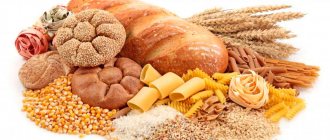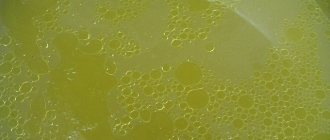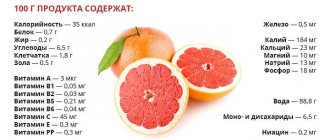The positive effects and importance of protein in the body include increased production and improved functioning of enzymes and hormones, as well as the health of all cells. Proteins determine the movement of molecules, regeneration of damaged cells and tissues, and provide mechanical and structural support to bones and skin. Eating enough protein is essential to maintaining a strong immune system, proper nerve function, healthy hair, and fluid balance in the body. Also, in some cases, protein can be used as a source of energy when losing weight, and not just as a building material for muscles.
Proteins are present in every cell and tissue, every organ of a living organism. They are also found in the blood in the form of enzymes, antibodies, hormones and much more. Translated from Greek, the word protein means “first”, “most important”. Proteins are involved in every chemical reaction that occurs in the body. They are responsible for the growth, development, regulation, restoration and protection of every living organism. They perform many functions inside cells, such as catalysis, transmission of hereditary information, and coordination of cell behavior.
Below we will analyze in more detail why proteins are needed in the diet and what role they play in the human body, we will tell you what are not only the benefits, but also the harm of this macronutrient.
Types of protein
Proteins can be divided into three main groups:
- Globular : These water-soluble proteins work in the intercellular environment, like antibodies or enzymes.
- Membrane : Membrane proteins are present in cell membranes and perform functions such as signaling or membrane movement.
- Fiber : These structured proteins are the main constituent of muscles, bones, ligaments and tendons. Other proteins include keratin, which makes up nails and hair, and collagen, which is found in the skin.
How to increase the amount of healthy protein in your diet
To eat as much healthy protein as possible, adjust your diet: replace processed carbohydrates with protein foods.
For example, snack not on chips and crackers, but on nuts and dried fruits. Instead of baked goods and sweets, eat Greek yogurt with berries or slices of fresh fruit. Replace pizza with omelet or baked fish.
The amount of protein in the finished dish depends on the method of processing the meat. It is best to boil, stew or bake.
The body fully absorbs 30-35 g of protein in one meal. Therefore, 5-6 meals a day in small portions is more effective than the classic three meals a day.
A glass of kefir half an hour to an hour before bedtime will increase the amount of healthy protein in your diet.
What are amino acids?
Proteins are made up of numerous chains of amino acids. This is why amino acids are often called the “foundation blocks” of all life. And the main reason why proteins are needed in human nutrition is to provide the body with all the necessary amino acids. The digestion or breakdown of protein releases a wide variety of amino acids that can be used by our bodies for growth, development and regeneration.
Types of amino acids
Amino acids can be classified into three different groups:
- Essential amino acids : The human body is completely unable to synthesize these amino acids. Therefore, they must be obtained from food. There are nine of these amino acids: histidine, isoleucine, leucine, lycine, methionine, phenylalanine, threonine, tryptophan and valine.
- Nonessential amino acids : These are the amino acids the body is able to produce on its own, either by digesting proteins or from other amino acids. Alanines, asparagine, aspagaric acid, glutamic acid are examples of non-essential amino acids.
- Conditionally essential amino acids : These amino acids are found to be essential in certain diseases. These include arginine, cysteine, glutamine, glycine, ornithine, serine, proline and tyrosine.
Are amino acids harmful to health?
In the human body, in the gastrointestinal tract, polypeptides are broken down into aminocarboxylic acids and then enter the blood. People for whom the benefits of proteins are obvious are sure that with any type of nutrition and activity it is necessary to additionally take amino acids - the components of proteins.
Amino acids sold in special stores are harmful to the health of a sedentary person. You can easily verify this if you start taking them systematically as a dietary supplement. Aminocarboxylic acids can be useful for people experiencing high physical stress at work, at home or in the gym.
You should consult a doctor if you want to start taking amino acids. The harm and side effects from their use are familiar to the doctor, and therefore he will be able to recommend the appropriate amount of aminocarboxylic acids or dissuade them from taking them.
In a healthy person, the percentage of protein in muscles does not exceed 20%. If you start taking AMK (amino acids) thoughtlessly, this percentage can easily be exceeded. The consequences will be severe pain in the muscle tissue under any, even the smallest loads.
Amino acids often cause acidification in the body. Because of which it is susceptible to seasonal diseases. The basis for the flu that is familiar to many is precisely the oxidation of the body. Alkalinization helps you recover faster. For example, by taking a soda solution.
Oksana Stier: “When I ate animal products, I got the flu several times a year. And even in the summer I managed to catch the virus. For the first few years after switching to veganism, I did not experience any health problems. But, trusting the experience of other people, I began to eat more protein foods and amino acids.
The result was not long in coming - six months later an illness arose, strongly reminiscent of the common flu. It was much easier to tolerate and did not produce much mucus. However, weakness, chills, body pain, cough, etc. strongly resembled a flu-like condition.
The consequence of the flu was severe intoxication of the body. But she was unusual for me. After all, the body had become unaccustomed to the unpleasant state, because it was no longer forced to deal with cadaveric poisons and poorly digestible animal proteins.
After the flu, I developed heartburn, general weakness of the body, persistent fatigue, sharp pains in the stomach, intestines and muscles, rashes on the skin, aching limbs, and swollen esophagus and nasopharynx. And as if this were not enough, strong adrenaline rushes and allergies to many foods returned.
Due to excess protein in my body, my health was partially similar to what I experienced when I preferred animal products and did not want to delve into scientific research and the experience of vegans. My example shows that plant protein can cause harm to the body if consumed in large quantities. True, the consequences are not as painful and painful as in the case of animal protein.
After refusing to eat processed proteins and amino acids, as well as reducing foods containing these substances in my diet, I forgot for many years about flu-like symptoms, and the health of my body completely improved. From that moment on, I began to realize the veracity of the statements of experienced vegans that ready-made protein and amino acids are not needed by a fully functioning body.”
Nutritional value of proteins
The amount of amino acids present in a protein indicates its nutritional value. This value may vary depending on the type of protein. For example, soy products or meat contain all possible amino acids, while proteins from plant sources often do not contain some types of amino acids. Therefore, people following a strict vegetarian or vegan diet should include foods that contain a variety of amino acids in their diet to avoid deficiency.
What foods contain protein?
Protein in nutrition: Role for health, sources, norms Photo: Depositphotos
Proteins are found in foods of both animal and plant origin. Each type of protein is good in its own way and has its own characteristics. They need to be taken into account when planning your diet.
Plant protein takes longer to digest than animal protein. To cover the daily requirement, you need to eat a lot. But during heat treatment it does not lose its properties.
Animal protein is quickly absorbed and the daily requirement can be obtained from a small amount of food. But such products are often fatty - and this is not very healthy.
Nutritionists advise including both types of protein in the menu - this way the body will receive a full set of amino acids.
Animal products
Animal proteins in the diet can be obtained from meat, fish, seafood, dairy, and eggs.
Meat, poultry
The main source of protein is meat.
Protein is most easily absorbed from poultry meat - chicken is considered the best. In second place is lean beef. Lean pork is preferable - it has more protein than fatty pulp.
Offal products - liver, kidneys, heart - are also rich in proteins.
Nutritionists classify boiled, stewed, steamed or baked dishes as “correct”. It is not recommended to fry meat - the cooking process produces trans fats that are harmful to the body.
Fish and seafood
Fish is lighter than meat. A good solution for those who are on a diet. The first place in the health rating is occupied by salmon - in addition to healthy protein, they contain omega-3 fatty acids.
Seafood is also rich in proteins. This also includes caviar and fish milt.
Eggs
Easy-to-digest proteins plus a whole storehouse of vitamins and minerals - that’s what eggs are on our menu. This is a good alternative to meat dishes.
Fermented milk
We are talking about natural fermented milk products without preservatives and other “additives” in the form of flavor enhancers, dyes, stabilizers, etc. Whey protein is a valuable component that strengthens the immune system, provides a feeling of satiety, and improves the condition of the skin, hair, and teeth.
Fermented milk products are the basis of many diets. These include cottage cheese, fermented baked milk, kefir, and natural yogurt. They are absorbed instantly and provide the same benefits to the body as proteins from meat and fish.
The most whey protein is found in cheese, whey and low-fat cottage cheese.
Plant Protein Products
Protein is found in many plant foods, including vegetables. It is the main source of protein for vegetarians and dieters. But nutrition experts recommend plant-based protein products for those who eat meat.
Nuts, seeds
Seeds and nuts contain a lot of vegetable protein. These include hemp seeds, sunflower seeds, flax seeds, pumpkin seeds, sesame seeds and various nuts - almonds, hazelnuts, cashews, peanuts, pistachios, Brazil nuts and walnuts.
Legumes, cereals, grains
Rich sources of vegetable protein include legumes: beans, green peas, chickpeas, lentils. This is a complete alternative to animal products.
Cereals allow you to quickly fill the protein gap. In addition, they contain polyunsaturated fatty acids, which improve metabolism. And they are rich in fiber - it normalizes the functioning of the digestive system.
All these products are widely used in vegetarian and dietary cuisine.
Vegetables
Vegetables have much less protein than legumes and seeds. But the most “protein-containing” ones are considered to be: cabbage, bell peppers, beets, spinach, asparagus, carrots, tomatoes, cucumbers, parsley.
Fruits and berries
Small amounts of vegetable protein are found in many fruits and berries - figs, bananas, apricots, pears, apples, cherries, cherries, strawberries, plums, black currants, sea buckthorn, etc.
Other sources of plant protein
The list of sources of plant protein is supplemented by cocoa powder, mushrooms, seaweed - especially spirulina, which is produced in the form of a biologically active food supplement. In addition to protein, it contains iodine and many useful minerals.
Beneficial properties of protein for the body
The amazing benefits that proteins provide: improved muscle growth and function, a strong immune system, healthy hair and much more.
Muscle growth
Proteins play an important role in muscle contraction and coordination. They are present in muscle tissue in the form of fibers. They are also responsible for the structure of muscles. Muscle growth depends on adequate protein intake in the body. It is very important to create a balance between the rate of muscle protein synthesis and the rate of destruction of these same proteins. The rate at which muscle fibers break down depends on numerous factors and conditions, such as age: the body's need for protein increases in adulthood because muscles begin to break down faster. Active athletes also need more protein, and they also need to consume it at specific times.
Strengthening the immune system
Proteins are necessary to maintain adequate functioning of the immune system. Your body knows how to fend for itself, protecting itself from various infections and diseases with the help of antibodies. Antibodies are specific proteins that have the ability to neutralize viral particles by binding to them. The body responds to infection by releasing antibodies that attack the pathogen.
Good for the nervous system
Another important role of proteins in the human body is the proper functioning of the nervous system. The nervous system is activated by any irritation to which the body responds with an appropriate reaction. Receptors that respond to irritation and transmit signals through the nervous system are complex complexes of proteins. These receptor proteins are also involved in sending signals within cells.
Supports water metabolism in the body
Balancing and regulating the fluids present in the body are critical functions of protein. This is where their ability to osmosis is used. The cell membrane, assembled from proteins, can change its water resistance. If the protein is inadequately low or the protein is incorrect, then the person will experience fluid imbalance. This is fraught with changes in blood acidity. If cells take in water without releasing it, it will cause edema, an abnormal accumulation of water in the tissues. Fluid balance is also important for many other functions, such as muscle function or the nervous system.
Energy source
Proteins can also be beneficial for the body as a source of energy. If the diet cannot provide enough energy, as happens when starving or following a strict diet, then the body begins to burn proteins to obtain the energy it needs. Since protein is not stored by the body, to obtain energy it is necessary to gradually decompose enzymes or muscles. From them amino acids and glucose are obtained, which are “food” for cells.
Healthy hair
Proteins help maintain hair health and protect it from damage. Research in this area has shown that proteins are essential for both hair growth and beauty. This is why various proteins are widely used in the production of hair care products such as conditioners.
Hormone balance
Enzymes or ferments are protein catalysts that play an important role in all biochemical processes occurring in our body. During a chemical reaction, the catalyst itself remains unchanged, but it speeds up the chemical reaction. Both the speed and outcome of a chemical reaction depend on the amount of enzymes present in the body. If chemical reactions, and therefore metabolism, are slowed down, then the body experiences a deficiency of the enzymes it needs. Various hormones, such as insulin, growth hormone or glycogen, are composed of the same amino acids that are present in proteins and from which all living things are built.
Movement of molecules
Another important function of protein in the body is the transport and storage of various substances. Proteins transport necessary elements across the cell membrane. This is important for the circulatory system and for providing cells with nutrition. For example, gas exchange between cells and blood occurs through hemoglobin, a red blood protein. Another protein stores iron in the liver. It's called ferritin.
Skin care
Proteins are also responsible for mechanically maintaining the shape and strength of various tissues that are constantly used and damaged. An example of such tissue is the epidermis. Collagen is an important and abundant fiber protein that is involved in the construction of membranes of cells, tissues and organs. It is part of those fabrics that have to be renewed all the time. A study of people with sunburn showed that adding collagen to the diet had a beneficial effect on skin regeneration. To keep your skin looking young and wrinkle-free, you need to consume enough collagen in your diet.
Regeneration of tissues and cells
To maintain health in the body, the body must constantly renew dying or damaged cells. To do this, it requires a constant supply of amino acids, from which proteins are formed. Proteins, in turn, make up cells and tissues. Intestinal epithelial cells, skin cells and blood cells only live for a couple of weeks, after which they are destroyed. And then it’s time to create new cells that will replace the destroyed ones. This process is called regeneration, and it is driven by proteins as they signal cell damage and help build new ones.
Bone Health
As already mentioned, the body contains a protein called collagen, which maintains the structure of cells. Collagen also helps maintain bone health. Collagen is needed by athletes involved in weightlifting or athletes who have to exercise for a long time. It protects their joints from damage and allows them not to wear out. A recent study showed the effectiveness of collagen in combating inflammatory conditions in the joints, such as arthritis.
Video: Is it possible to drink raw eggs for muscle growth?
Various sources of information constantly broadcast about the benefits of protein for the body. But few people know exactly why this element is useful. Protein is a very important compound because... acts as a carrier of life. More than twenty types of amino acids are the building blocks of protein. By binding in a variety of combinations, amino acids form protein, without which it is simply impossible to support the vital functions of the body. Below, you will find the main products containing protein and a table with their amount, and also find out what role it plays for our body.
Foods with the most protein
Some amino acids the human body cannot reproduce on its own. They are called irreplaceable. You need to replenish their supply with food. If a deficiency of these amino acids is created in the body, a sufficient amount of protein is no longer produced, and this leads to improper functioning of the body.
Protein (protein) is an organic substance consisting of amino acids connected in a chain. It is an indispensable source of energy and cell structure for all systems of our body. 13 amino acids can be synthesized independently in our body, and 9 come from foods high in protein.
The role of protein for the body:
- improves recovery, affects cell construction, increases muscle tissue growth;
- responsible for the synthesis of hormones;
- promotes blood clotting; without enough protein in the body, even a slight cut can lead to serious bleeding;
- stimulates the functioning of the nervous system, a deficiency leads to improper coordination and a difficult mental process;
- normalizes the functioning of the kidneys and liver, while perfectly rejuvenating the skin;
- is a source of energy for the body;
- ensures the delivery of nutrients to all systems;
- improves immunity, fights infections;
- significantly strengthens the structure of hair and nails;
- increases the speed of chemical processes occurring in the body.
Proteins of animal and plant origin
Animals include that group of proteins that enter the body with food of animal origin . These are dairy products, meat, fish, eggs. They are considered complete. The biological value of protein depends entirely on the balance of amino acids , the level of their digestion and assimilation by the body. The most valuable proteins are identified as milk, meat and eggs.
Proteins of plant are less valuable . Their unbalanced state of essential amino acids is more difficult for the human body to absorb. They are quite difficult to digest because they have a dense fiber shell.
Important! Only a combination of animal and plant proteins can provide the body with a complete amount of amino acids.
According to doctors, the correct diet of an adult should include 55% animal proteins and 45% plant proteins . At the same time, you should know that the body’s absorption of the first type reaches 90%, and that of the plant variety ranges from 60 to 80%.
Daily protein intake
Most nutritionists adhere to the following protein intake per day:
1 - 1.5 grams per 1 kilogram of human body weight, which is approximately
- women - 70 - 90 g per day,
- men - 90 - 130 g per day.
Children require slightly more protein per kilogram of body weight.
- for preschool children this figure is approximately 3 g per kg of body weight,
- for school-age children - about 2 g per kg of body weight.
Much depends on the characteristics of not only lifestyle (mobility, mental stress, etc.), but also on the digestibility of the product by the body, some diseases, etc. This must be taken into account when calculating your norm.
Effect of heat treatment on protein
At temperatures of 70° and above, protein coagulation begins. In which the protein structure changes, transforming it into a linear chain of amino acids. In this form the protein becomes more accessible to digestion by digestive enzymes and is better absorbed by the digestive tract . But this happens only with the correct ratio of heat and time treatment. During long-term thermal processes, the loss of some important amino acids such as lysine occurs.
How much should you consume per day?
A healthy diet containing a balanced amount of nutrients provides sufficient protein on its own without any additives. The recommended daily amount to be consumed daily depends on the health and age of the individual. However, 2-3 servings of protein-rich foods are enough to meet the protein needs of many adults. For example, one egg, 30 grams of cheese or one bowl of baked beans constitutes one serving. For children and older adults, protein requirements increase as they age.
To calculate the amount of protein a person needs per day, you can use the following formula: multiply 0.75 grams of protein per kilogram of weight (for women) and 0.84 grams of protein per kilogram of weight (for men). In some cases, for example during pregnancy, lactation or strength training, the need for protein increases.
Which protein is better - animal or plant protein?
Scientists have found that animal protein is processed within 3-36 hours. The rate of breakdown depends on the state of the digestive system and the body as a whole. Over the years, a person who consumes large quantities of milk, fish, meat and eggs has to struggle with diseases of the stomach, pancreas and intestines.
And that is not all. Animal protein aggressively acidifies the body. Because of this, the body pulls calcium from bones, nails and teeth for alkalization. Lack of calcium and oxidized blood play a detrimental role for the human body. As a result, the musculoskeletal system malfunctions, like many internal organs. Read more about this in other articles on the site posowetuite.ru.
It takes no more than 0.5-1.5 hours to process vegetable protein, if the body is not too weakened and not polluted. But lovers of animal products find it difficult to digest not only animal proteins, but also plant proteins. It traditionally takes feeders from 1.5 to 5 hours to break down the latter.
Plant protein is considered easily digestible. Therefore, doctors started talking about the benefits of its use. Many doctors prescribe plant-based diets to patients, recommending that they avoid foods containing animal protein at least for the duration of treatment. However, you should be aware that if consumed in excess, vegetable protein can oxidize the body.
A person needs protein. The benefit or harm of this substance depends on whether it is foreign or produced by one’s own body, and how well it is absorbed. Of all types of proteins, those obtained from animal products are the most harmful, plant proteins are better processed, and the greatest benefit of protein for the human body is observed if the intestinal microflora independently produces this substance.
Side effects
Gaining excess weight
Diets that are low in carbohydrates and high in protein are often recommended for people trying to lose weight. However, if you do not track the number of calories you consume, your body will begin to convert amino acids into fats, which will inevitably lead to weight gain. Also, if you consume only proteins, you will become deficient in other substances.
Heart problems
A high protein diet can worsen existing heart problems and also raise cholesterol levels to unhealthy levels. You should not consume too much protein if you have kidney problems.
Ammonia
Ammonia is a byproduct of protein breakdown. Ammonia is very harmful to health, so the body converts it into urea. This process occurs in the kidneys, which remove urea from the body in urine. If you include too much protein in your diet, your kidneys will have to work harder to remove all the ammonia from the body.
Those who lift heavy weights do not necessarily need to add large amounts of protein to their diet to gain muscle mass. In fact, muscle growth occurs not only due to increased protein intake, but also due to strength training, which stimulates muscle growth.
Bone Health
Some scientists claim that exceeding the recommended amount of protein can harm bone health. They believe that you need to consume enough calcium in your diet to keep your bones strong. Eating large amounts of protein increases calcium levels in the urine, which leads to weakened bones. But it is recommended not to reduce the protein content in the diet, but to supplement it with fresh fruits and vegetables.
Also, if you eat too few carbohydrates, you may experience negative effects such as increased levels of ketones in the body and, consequently, weakening of muscles.
Where to get plant proteins from
Soybeans
Soybean is the undisputed leader among plants. 100 g of its seeds is 36 g of protein. That is why soy products are so valued in the countries of the Far East, where meat farming has traditionally been underdeveloped.
Soy-loving populations have been proven to suffer less from cancer, cardiovascular disease and osteoporosis Protein – Which is Best? .
Soybeans end up on our plates mainly in processed form: as soy meat, milk and tofu cheese.
Other legumes
Slightly less protein - 21 g per 100 g of weight - is contained in beans. Of course, it will be healthier if you buy it dried, and then soak and cook it yourself, but canned food will also work. Lentils boast only 9 g of protein per 100 g of weight, green peas - 5 g.
But peanuts are ahead of them all: 100 g of the fruit of this legume contains 26 g of protein. But there is a lot of fat (49 g), so you shouldn’t lean on these “nuts”.
Relatively recently, chickpeas, or chickpeas, from which hummus is made, have become popular in Russia. For those trying to lose weight, it is a real find: 100 g of chickpeas is 19 g of protein and only 6 g of fat.
Nuts
Nuts are not inferior to legumes in protein content. For example, 100 g of almonds is 21 g of proteins, and 100 g of pistachios is 20 g. Cashews (18 g), walnuts and hazelnuts (15 g each) contain slightly less of these substances. But it is worth remembering that nuts contain a lot of fat.
Cereals
Another important source of plant proteins is cereals. 100 g of oatmeal, for example, contains 17 g of protein, wheat - 14 g, corn - 9 g, rice - 2.7 g.
Vegetables and fruits
Vegetables and fruits are, of course, not the best source of proteins. But among them there are their champions. For example, spinach (2.9 g protein per 100 g), broccoli (2.8 g), asparagus (2.2 g), avocado (2 g), banana (1.1 g) and cherries (1 g).











